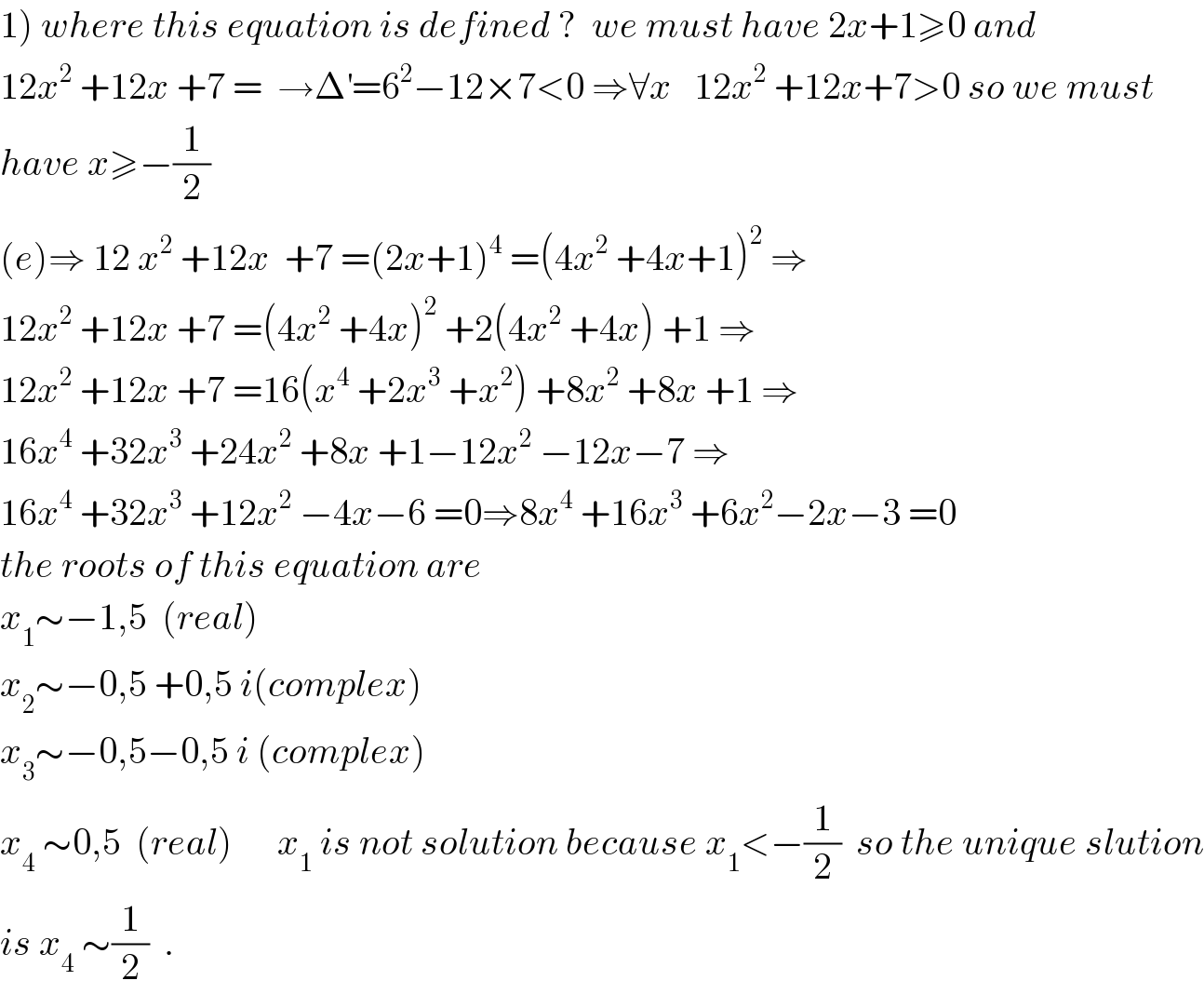
Question and Answers Forum
Question Number 42543 by solihin last updated on 27/Aug/18

Commented by solihin last updated on 27/Aug/18

Commented by maxmathsup by imad last updated on 27/Aug/18

Commented by maxmathsup by imad last updated on 27/Aug/18

| ||
Question and Answers Forum | ||
Question Number 42543 by solihin last updated on 27/Aug/18 | ||
 | ||
Commented by solihin last updated on 27/Aug/18 | ||
 | ||
Commented by maxmathsup by imad last updated on 27/Aug/18 | ||
 | ||
Commented by maxmathsup by imad last updated on 27/Aug/18 | ||
 | ||